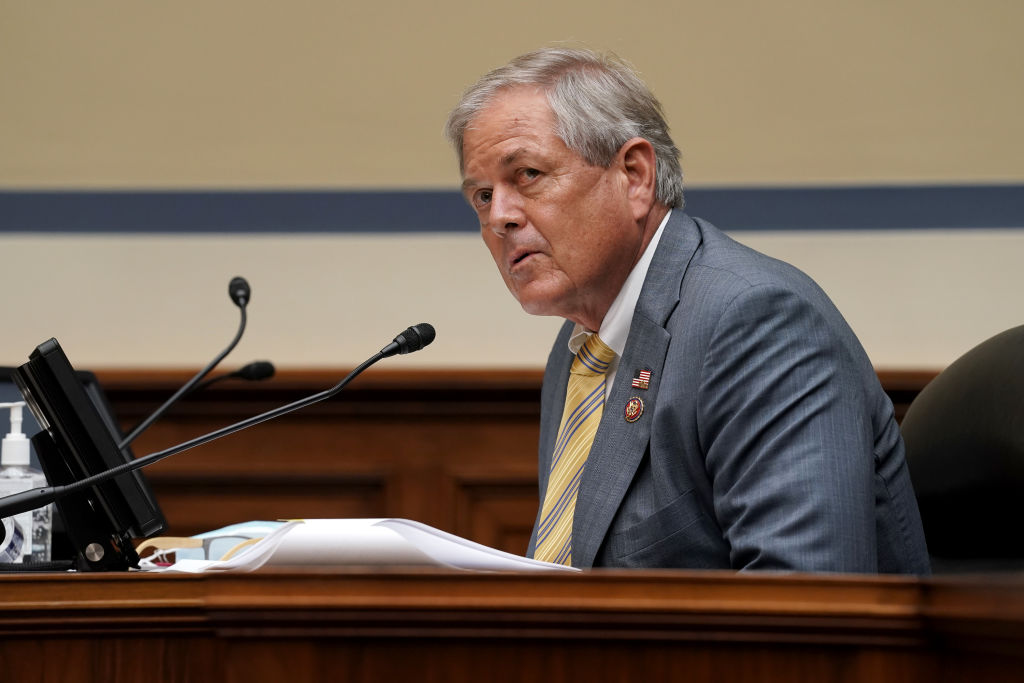Family Donates to School Board Candidate That Opposes CRT, Major Newspaper Outs Them in Sick Way
Last Thursday, the Cincinnati Enquirer published a piece regarding school board candidates’ use of the cash-transfer app Venmo for donations, which may potentially violate Ohio state finance law, given that it went into personal accounts.
The article involved candidates for the Lakota Local School District board of education; the district, in the northern suburbs of Cincinnati, is one of many which has seen a pitched battle over whether critical race theory is being and should be taught in its schools.
The piece would have mainly been a boring one — it didn’t identify either of the candidates facing questions about their financing, Darbi Boddy and Russ Loges, as being anti-critical race theory.
However, in a painful lapse of journalistic ethics, the Enquirer decided they would leave a donor’s home address visible on a screenshot of the Venmo transactions page, essentially doxing them.
INBOX: The Cincinnati Enquirer just doxxed a middle class family from West Chester over the school board issue. Here’s a redlined screenshot of the main page on their website. pic.twitter.com/lljGbM4VGZ
— John Ashbrook (@JohnAshbrook) October 29, 2021
Study: Americans with J&J COVID Vaccine 3.7 Times More Likely to Develop Blood Clots Than Average Person
“The Cincinnati Enquirer just doxxed a middle class family from West Chester over the school board issue,” political strategist John Ashbrook tweeted.
According to Fox News, the images were later taken down from the Enquirer’s website — although conservatives were outraged.
Should newspapers be allowed to dox people in this way?
“This is absolutely unacceptable,” said J.D. Vance — author, Ohio senatorial candidate and Cincinnati native.
“I’d expect national journalists to harass families, but not our local paper.”
Another Ohio GOP Senate candidate, former Ohio Republican Party chair Jane Timken, noted these were the same kind of activist parents being called “domestic terrorist[s]” by certain groups.
This is absolutely unacceptable. I’d expect national journalists to harass families, but not our local paper. https://t.co/lClNzizfWM
— J.D. Vance (@JDVance1) October 29, 2021
Labeled a ‘domestic terrorist’, doxxed by the media – THIS is what concerned parents are dealing with when they’re just trying to exercise their right to free speech, have a say over their children’s education, and protect their kids.
Absolutely unacceptable. https://t.co/N6TjlExrfX
— Jane Timken (@JaneTimkenOH) October 29, 2021
New Investigation Debunks Pathetic McAuliffe Lie That ‘CRT is Not Taught in VA Schools’
Gannett, which owns the Enquirer, noted the screenshot was erased from the article quickly after it garnered online attention — but offered an odd excuse for revealing the family’s address.
“The cropping of the promo image was corrected immediately although campaign donations are public record,” a Gannett spokesperson said, according to Fox.
This is indeed accurate. There a lot of things you do that are public record — that also shouldn’t be amplified to the world by the biggest media source in Cincinnati, or in any other city. Most people don’t seek that information out, but the Enquirer served it to its readership on a platter. That they can’t see the problem there is just as disconcerting as the fact they amplified it in the first place.
The story in its original form is available on Archive.is with the screenshot in place. The image is thoroughly unnecessary to the story. The two individuals mentioned are running for three open seats on the Lakota board, and while their sympathies aren’t mentioned in the story, they aren’t a mystery to voters or to Enquirer writers Erin Glynn and Madeline Mitchell.
Furthermore, given the tenor of school board debates, the decision to use the screenshot — and not vet whether or not the addresses or names were visible — is a mistake that can’t just be wallpapered over by saying, “yeah, but it’s public record.”
From the sounds of things, Boddy and Loges should have been more careful in terms of how they accepted campaign donations via Venmo. The article can serve as a warning to parent activists — dot your I’s and cross your T’s when it comes to campaign finance.
However, the story quickly became a major newspaper’s decision to dox donors in a contentious campaign and then hide behind a public record defense. That reasoning is inexplicable, particularly given how little the screenshot contributed and the obvious utility of the information for bad actors. This is doxing and targeting, plain and simple. The Cincinnati Enquirer needs to acknowledge that.





